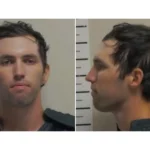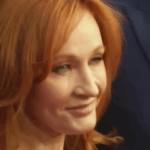Gender Ideology, LGBT+
Margaret Atwood rages over Alberta’s crackdown on sexually explicit books in schools
Over her storied career, Margaret Atwood has collected over 50 literary awards. The author of The Handmaid’s Tale – which was subsequently adapted into a TV show condemned by some critics as misogynist torture-porn – has landed the Booker Prize, the Scotiabank Giller Prize, and the Governor General’s Literary Award. She is also a Companion of the Order of Canada.
But what Atwood really wants to be is a persecuted dissident, and thus she has, of late, been attempting to achieve this. She hasn’t quite donned the signature red garb and white bonnet of her fictional Gilead like so many abortion activists, but she did recently announce in a speech (she was accepting yet another award) that she might be “arrested” if she attempted to cross into the United States.
To her obvious delight, her books have once again made headlines – this time in Canada, where The Handmaid’s Tale ended up on a “banned book list” compiled by Edmonton Public Schools. In May, Alberta Premier Danielle Smith announced a forthcoming policy that would ban pornographic and sexually explicit books from public school libraries. The new rule came in response to revelations that graphic, sexually explicit books such as Gender Queer and Flamer were being included in libraries for young children.
LGBT activists and their public-school allies promptly accused Smith and the UCP government of a censorious crackdown, and Edmonton Public Schools compiled a list of over 200 books that could ostensibly be described as containing “sexually explicit material,” including Atwood’s as well as 1984 by George Orwell, The Great Gatsby, and several other prominent classics. This prompted another outcry, precisely as those who compiled the list had intended.
Smith correctly described the move as “malicious compliance” – an attempt to discredit the policy by deliberately ignoring the obvious and clearly-stated purpose of removing pornographic material. On the other hand, journalists gleefully covering the story ignored the presence of many obviously inappropriate books on the list. Philip Roth, renowned for his sexually explicit scenes, was being made available to students; so was George R.R. Martin’s Game of Thrones.
I once took one of his books off the shelf in a bookstore, flipped it open, and read a few pages. That was enough. Graphic sexual violence, insistent references to female characters as the “c-word”; whatever your moral position is on such trash, we should not be supplying it to kids. The same goes for plenty of other books on that list. In response to critics crying “censorship,” Education Minister Demetrios Nicolaides provided his own list of inappropriate materials found in school libraries on X.
But of course, the language of “book bans” is merely a cover for the real purpose of those employing it: maintaining the ability to supply sexually explicit, ideologically driven LGBT material to children. On August 31, Atwood posted a “short story” to X to mock Danielle Smith. The story highlights all her signature skill:
John and Mary were both very, very good children. They never picked their noses or had bowel movements or zits. They grew up and married each other, and produced five perfect children without ever having sex. Although they claimed to be Christian, they paid no attention to what Jesus actually said about the poor and the Good Samaritan and forgiving your enemies and such; instead, they practised selfish rapacious capitalism, because they worshipped Ayn Rand. (Though they ignored the scene in The Fountainhead where “welcomed rape” is advocated, because who wants to dwell, and also that would have involved sex and would de facto be pornographic. Well, it kind of is, eh?) Oh, and they never died, because who wants to dwell on, you know, death and corpses and yuk? So they lived happily ever after. But while they were doing that The Handmaid’s Tale came true and Danielle Smith found herself with a nice new blue dress but no job. The end.
That sinister nonsense cosplaying as satire is, of course, an attempt to defend those defending pornographic material in school libraries, and as such deserves not just mockery, but contempt.
Indeed, it is important to recognize the fundamental difference between banning a book and deciding that certain books and graphic novels will no longer be purchased by government schools, with taxpayer dollars, and provided to children. This distinction, however, is willfully ignored by journalists and by Margaret Atwood herself.
It is not “censorship” when the state does not provide your work to the young, and the level of arrogance somebody must possess to think that it is can only be the result of dozens of unmerited awards.








